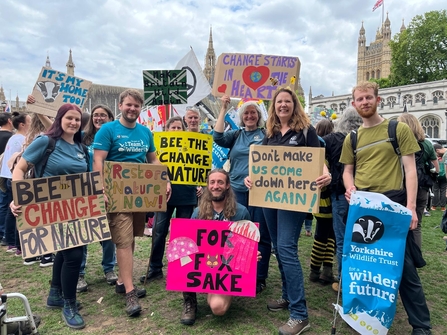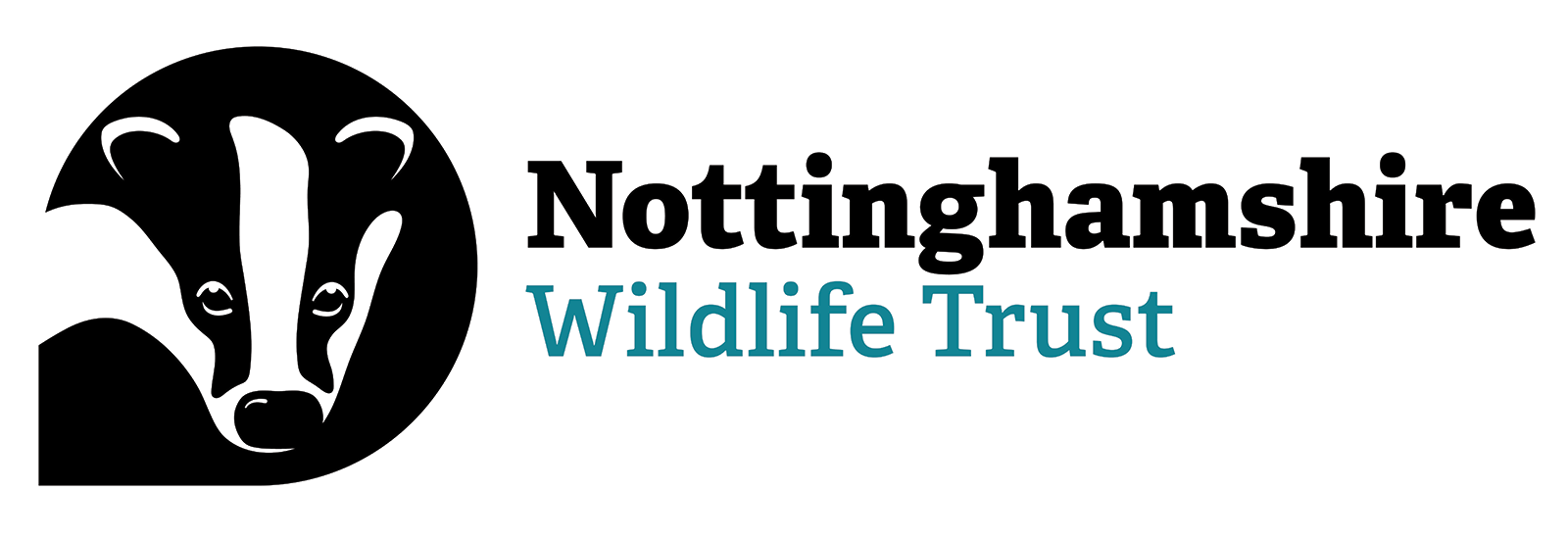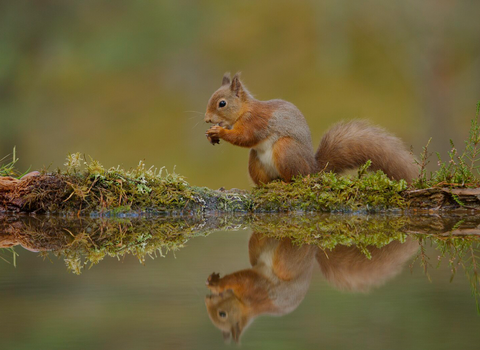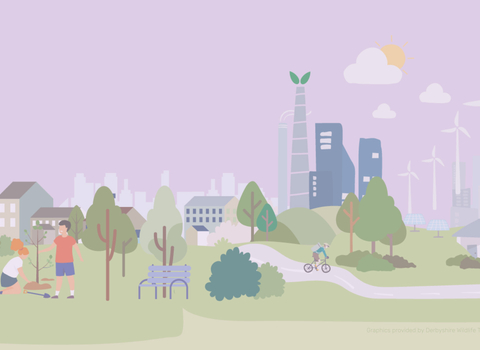Speak up for nature
Throughout the election campaign, it was clear that people recognise that our natural world is in crisis and want politicians to make the bold and ambitious commitments to reverse the decline. So, with the results now in, we need all MPs, whatever party they represent, to know we want a better future for nature.
Constituents in your area have elected a Member of Parliament to represent your local area and your interests in the Houses of Parliament.
Nottinghamshire Wildlife Trust will be contacting our 11 newly elected MPs and you can play your part in ensuring they send a message to Government that you want bold and urgent action for both nature and climate.
Policies must be targeted towards species recovery, addressing water pollution, funding wildlife-friendly farming, enabling healthy communities, and tackling climate change.
We need our new MPs to be aware just how many of us care about nature’s recovery here in Nottinghamshire. Details of how to contact your new MP are listed below. Please get in touch urgently so that we can get nature and climate issues higher on the agenda.

Tell them why nature is important to you and if you want to add more detail, here are five asks that The Wildlife Trusts think the new government should prioritise in their first 100 days
- Deliver where the last government didn’t
The last government made big commitments for nature but failed to deliver on promises. Despite a 2022 commitment to ban the sale of peat for use in the amateur gardening sector by 2024, no legislation was introduced. A Bill to enact the ban is ready and waiting – it just needs to be introduced into Parliament.
Similarly, the previous government made commitments to licence the reintroduction of beavers in England. Despite a consultation in 2021, they failed to set out their approach to further reintroductions and management of the species in the wild. Beavers bring huge benefits to other wildlife, as we are finding with our reintroduced beavers at Idle Valley as well as creating habitats that alleviate food risk and reduce the effects of drought. Vast numbers of wetlands have been lost in last 50 years – the fastest and cheapest way to restore these habitats is to allow the reintroduction of beavers.
- Kick off a review of the Environmental Improvement Plan
Last month The Wildlife Trusts supported a judicial review led by Wildlife and Countryside Link, a coalition of over 80 charities, to challenge the UK Government’s failure to consider a review of its Environment Improvement Plan, following a highly critical report from the official nature watchdog, the Office for Environmental Protection.
Politicians have yet to take sufficient action to meet the target to halt nature’s decline by the end of the decade, nor have they laid out clear and credible plans for how they would do so. Responsibility for this plan and meeting the targets now rests with the new Government.
- Ensure changes to the planning system deliver for nature, climate and people
Changes to the planning system are likely to be one of the first actions of the new government. With the right approach, the planning system can help address the nature and climate crisis, whilst getting Britain building. Tools such as Biodiversity Net Gain should play their full role in tackling the nature crisis by covering all developments and increasing contributions. Nature-positive measures should also be built into the design of all new developments.
Designated sites, including Local Wildlife Sites, must be protected in the planning system and vital protections for nature, such as the habitats regulations, should be maintained. Nature mustn’t be set against the necessary provision of homes and infrastructure.
It is also vital that any changes to the planning system ensure that people living in urban areas are not further disadvantaged in terms of access to wildlife-rich greenspaces – as highlighted in our urban vision for Nottinghamshire.
- Stop river pollution
Sewage, wastewater and agricultural pollution are suffocating our rivers and the wildlife that depends on them. This problem affects every single river, lake, estuary and coastal water in England and the public rightly want to see this resolved urgently.
The new government should recognise that nature is part of the solution – for example river buffers and wetlands can stop rainwater from overwhelming the sewage system and agricultural pollution from leaching into freshwater habitats. Environmental regulators must also be properly supported to enforce basic regulation to maintain standards and to back innovative solutions.
More support is also urgently needed to tackle farm pollution from chemical fertilisers, pesticides and manure - which cause more failures against water quality standards than pollution from the water industry.
Nottinghamshire Wildlife Trust is currently working with farmers to reduce agricultural pollution and running the Three Rivers Project, with an aim to conserve water by managing the landscape with landowners to reduce water scarcity, manage flows and improve habitat on watercourses in the Sherwood Forest area.
- Get the farming transition back on track
The destruction of nature and the impacts of climate change are the biggest threats UK food security. Without healthy soils, clean water, and pollinators, we will be unable to produce food domestically – increasing reliance on insecure imports. Restoring nature on farms will bring many benefits, not just for wildlife but also for farmers. Working with nature can reduce costs, boost farm profits, increase resilience and maintain or even improve yields.
To secure long-term food security the budget to support wildlife-friendly farming should be increased. Many farmers have made great efforts to support wildlife without being properly rewarded. The real terms value of the budget for environmental farming has fallen by a third since 2010.
Action to deliver Labour’s promise of a Land Use Framework to consider competing demands on our land should start immediately, to ensure we can protect at least 30% of land and sea for nature by 2030 and ensure food production in the UK adapts in response to climate change.
Nottinghamshire Wildlife Trust works with dozens of farmers across the county and among other initiatives recommends growing herbal ley and cover crops to protect soils and boost wildlife.
With the new Government due to serve a five-year term, its policies and actions will be pivotal in deciding whether the UK meets domestic and international climate and biodiversity commitments.
The UK is already classified as one of the world’s most nature-depleted countries – and continues to decline. The Wildlife Trusts called on all political parties to commit to halting and reversing this trend. Thousands of our supporters contacted candidates to say they care about nature and 60,000 marched to Parliament Square to demand action.
Find our more – for further detail about what The Wildlife Trusts want to see happen after the election, read our latest blog.
Once you’ve emailed your MP, do let us know.


